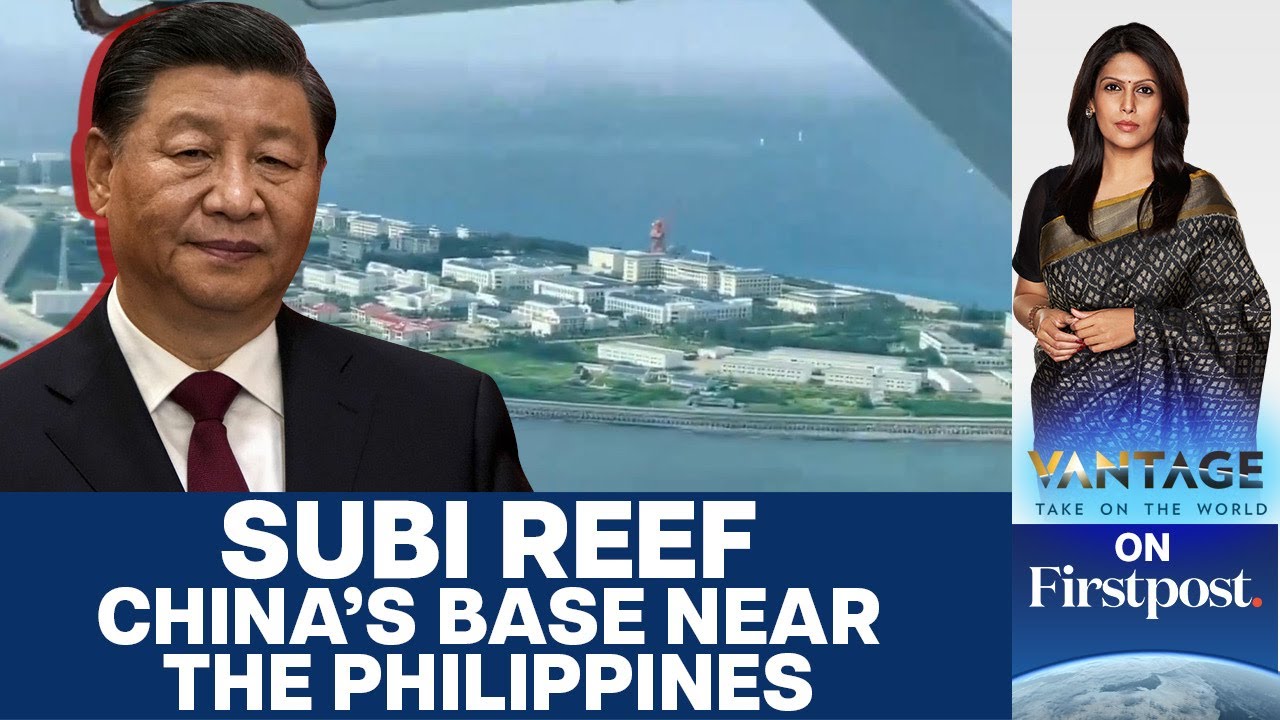PH not cowed by China’s threat to crush any incursion in WPS | INQToday
Summary
TLDRThe Philippines reaffirms its commitment to defend its territorial integrity in the West Philippine Sea, following China's warning against foreign incursions in the South China Sea. The government maintains its stance aligns with international law, including the UN Convention on the Law of the Sea and the 2016 arbitral ruling. Despite China's claim over most of the South China Sea, the Philippines and China engage in bilateral consultations to reduce tensions and explore cooperative areas concerning the disputed waters.
Takeaways
- 🇵🇭 The Philippines is committed to defending its territorial integrity, sovereign rights, and jurisdiction in the West Philippine Sea.
- 🇨🇳 Beijing has warned against any foreign incursion into what it claims to be its territory in the South China Sea.
- 🗣️ The Philippine National Security Council spokesperson, Jonathan Malaya, emphasized that the government's position aligns with national interest and international law.
- 📜 The Philippines refers to the United Nations Convention on the Law of the Sea and the 2016 arbitral ruling to support its claims.
- 🔄 Chinese Army Lieutenant General H Le expressed hope for peace in the region but warned against foreign interference.
- 🇺🇸 The Philippines refuted being a pawn of the US, asserting its independent stance on the issue.
- 🤝 The Philippines and China held bilateral consultations in Beijing to discuss reducing tensions in the West Philippine Sea.
- 🔎 DFA Under Secretary Maria Teresa Lazaro and Chinese Foreign Vice Minister Chen Sha Dong had a candid exchange on the maritime conflict.
- 🏝️ Both countries maintained their claims in the South China Sea but agreed to continue discussions on cooperation.
- 🚫 A 2016 arbitral ruling invalidated China's extensive claims over the South China Sea, including the West Philippine Sea.
Q & A
What is the Philippines' stance regarding its territorial integrity in the West Philippine Sea?
-The Philippines is committed to defending its territorial integrity, sovereign rights, and jurisdiction in the West Philippine Sea, in accordance with national interest and international law, including the 2016 arbitral ruling.
How did the Chinese government respond to foreign presence in the South China Sea?
-Chinese Army Lieutenant General He Lei stated that Beijing hopes the South China Sea remains a sea of peace, but warned that the People's Liberation Army would not tolerate any foreign incursions, particularly those involving the United States.
Does the Philippines feel alluded to by China's remarks about foreign pawns?
-No, the Philippines does not feel alluded to and asserts that it is not, and will never be, a pawn of the United States.
What was discussed in the bilateral consultation between the Philippines and China on September 11?
-Delegates from the Philippines and China discussed ways to reduce tensions in the West Philippine Sea, with both countries standing firm on their claims but agreeing to continue discussions on areas of cooperation.
What international law is the Philippines' stance in the South China Sea based on?
-The Philippines' stance is based on international law, particularly the United Nations Convention on the Law of the Sea (UNCLOS) and the 2016 arbitral ruling that invalidated China's sweeping claims over the South China Sea.
What was China's position regarding the 2016 arbitral ruling?
-China continues to assert sovereignty over most of the South China Sea, including the West Philippine Sea, despite the 2016 arbitral ruling that invalidated its claims.
What did Chinese Lieutenant General He Lei imply about the U.S. involvement in the South China Sea?
-Lieutenant General He Lei suggested that China believes the U.S. may be pushing other countries to the front line of conflicts in the region and warned that China would not have patience if the U.S. itself becomes directly involved.
Who represented the Philippines in the bilateral consultation mechanism with China?
-The Philippines was represented by Department of Foreign Affairs Undersecretary Maria Teresa Lazaro during the bilateral consultation mechanism in Beijing.
What was the main focus of the consultation between the Philippines and China?
-The main focus of the consultation was to find ways to reduce tensions and discuss possible areas of cooperation in the disputed waters of the South China Sea.
How does the Philippines view its relationship with the United States in the context of the South China Sea conflict?
-The Philippines maintains that it is not a pawn of the United States and emphasizes its independent stance in defending its territorial rights in the South China Sea.
Outlines

Esta sección está disponible solo para usuarios con suscripción. Por favor, mejora tu plan para acceder a esta parte.
Mejorar ahoraMindmap

Esta sección está disponible solo para usuarios con suscripción. Por favor, mejora tu plan para acceder a esta parte.
Mejorar ahoraKeywords

Esta sección está disponible solo para usuarios con suscripción. Por favor, mejora tu plan para acceder a esta parte.
Mejorar ahoraHighlights

Esta sección está disponible solo para usuarios con suscripción. Por favor, mejora tu plan para acceder a esta parte.
Mejorar ahoraTranscripts

Esta sección está disponible solo para usuarios con suscripción. Por favor, mejora tu plan para acceder a esta parte.
Mejorar ahoraVer Más Videos Relacionados

Chinese Ship Rams into Filipino Vessel: Latest West Philippine Sea Clash | Vantage with Palki Sharma

More Chinese Aggression: Philippine Ships Attacked with Water Cannons | Vantage with Palki Sharma

China Militarises Island near the Philippines: How will Manila React? | Vantage with Palki Sharma

South China Sea Tensions: Beijing says collision took place in West Philippine sea | WION

Pagpapaalis sa monster ship, muling igigiit ng Pilipinas sa pulong kasama ang China bukas | 24 Oras

Gen. Info - Article 1: The National Territory of the Philippines
5.0 / 5 (0 votes)
